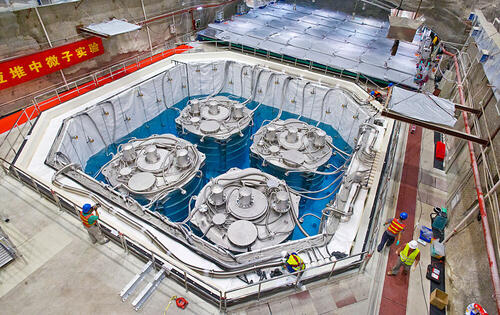
Over nearly nine years, the Daya Bay Reactor Neutrino Experiment captured an unprecedented five and a half million interactions from subatomic particles called neutrinos. Now, the international team of physicists of the Daya Bay collaboration, which includes Karsten Heeger, professor and chair of the Yale Physics Department and a member of Yale’s Wright Lab, has reported the first result from the experiment’s full dataset—the most precise measurement yet of theta13, a key parameter for understanding how neutrinos change their “flavor.” The result, announced at the Neutrino 2022 conference in Seoul, South Korea, will help physicists explore some of the biggest mysteries surrounding the nature of matter and the universe.
Heeger and his group played a leading role in the overall design, assembly, and commissioning of the US contribution to the eight Daya Bay antineutrino detectors, in particular the design and fabrication of the detectors’ target vessels and a system for measuring the detectors’ target mass.
To read more about the result, read the article, “Physicists announce first results from Daya Bay’s final dataset,” linked below.
To learn more about Daya Bay and Wright Lab’s involvement, please also see the article from 2020, “Scientists Say Farewell to Daya Bay Site, Proceed with Final Data Analysis”.